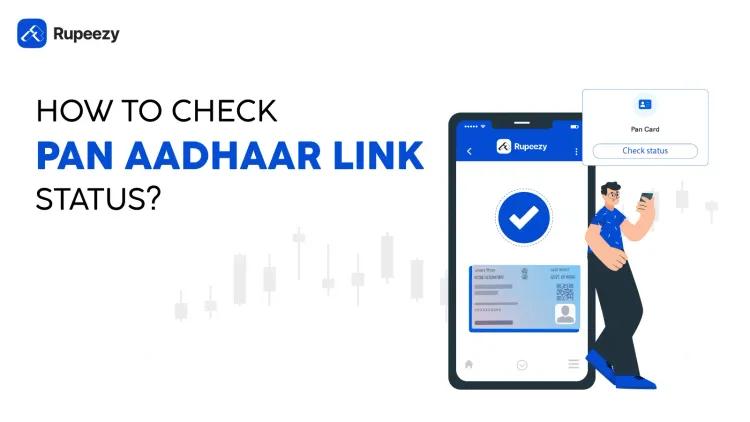Is Forex Trading Legal in India?


00:00 / 00:00
Forex trading involves the buying and selling of currencies to make profits from their fluctuating exchange rates. With increasing access to online trading platforms and the expectations of high returns, many Indians have started showing interest in forex trading. However, it is governed by strict government regulations that must be followed.
In this article, let us explore what forex trading really is, is forex trading legal in India, and guide you on how to trade forex safely and legally in India.
What is Forex Trading?
Foreign Exchange Trading, shortly known as Forex Trading, refers to the practice of exchanging one currency for another with the intention of earning a profit from fluctuations in their exchange rates. It is the process of trading currency pairs, such as INR/USD, where traders speculate on the relative movement in value between the two currencies.
Speaking more of this, in a currency pair, the first currency is known as the base currency, while the second is referred to as the quote currency. The spread represents the gap between the buying (ask) price and the selling (bid) price.
Moving forward, the Foreign Exchange Market is known to be the most liquid and largest market in the world. The transactions here happen 24 hours a day and 5 days a week. To decide the right time to enter or exit a trade in this market, the traders rely on various strategies, ranging from technical analysis to monitoring economic updates.
Is Forex Trading Legal in India?
Forex trading in India sits in a grey area, and this is because it is not entirely banned, but it is tightly controlled by the Government and regulatory bodies. It is like a landscape where opportunity meets stringent oversight! With this, we can say that Forex trading is legal in India, but comes with a heavy price of strict regulations that need to be followed in an unavoidable way.
Permitted RBI Guidelines for Forex Trading in India
Now that we have an answer to the question ‘Is Forex trading legal in India?’, we need to understand the guidelines and regulations that come with it. Here’s a breakdown of the key permitted guidelines set by the Reserve Bank of India (RBI) under the Foreign Exchange Management Act, 1999 (FEMA) to engage in forex trading.
Authorised persons and platforms:
Under the Foreign Exchange Management Act (FEMA), 1999, residents in India can engage in forex transactions only through authorised entities and for approved purposes only. These authorised entities, which are licensed by the RBI, include dealers, money changers, offshore banking units, or any person permitted under Section 10(1) of FEMA.
Authorised Electronic Trading Platforms (ETPs):
As per FEMA and RBI guidelines, residents in India can carry out permitted forex transactions only through authorised Electronic Trading Platforms (ETPs) or recognised stock exchanges like NSE, BSE, and MSE. On the other hand, unauthorized platforms are strictly prohibited.
These ETPs are electronic systems (excluding stock exchanges) used for trading instruments like forex, derivatives, and securities. We also need to note that no entity can operate an ETP without prior RBI approval under the 2018 RBI directions.
Permitted Currency Pairs:
Indian residents are primarily allowed to trade in currency pairs involving the India Rupee (INR). These include US Dollar (USD/INR), Euro (EUR/INR), Great Britain Pound (GBP/INR), and Japanese Yen (JPY/INR). Beyond these specified pairs, trading in any other currency pair, such as EUR/USD or GBP/USD, is considered to be illegal, and penalties will be levied accordingly.
How Can You Legally Forex Trade in India?
Trading forex in India is not as simple as signing up on any online platform and picking a currency pair. It is legal, but only when done within the strict regulatory framework set by the RBI and the SEBI. If you want to start trading forex in a legal and compliant manner, here’s a step-by-step guide:
Educate yourself about the forex market:
Before diving in, take time to thoroughly understand how the forex market works. Learn about currency pairs, how exchange rates fluctuate, technical and fundamental analysis, chart patterns, timeframes, and trading styles.
Choose a SEBI-registered forex broker:
Once you’re ready to begin trading, your first legal step is choosing a SEBI-authorised broker. Avoid foreign-based or unregulated brokers at all costs, as they are illegal for Indian residents and can land you in trouble under FEMA laws.
Start your forex trading journey with Rupeezy today and unlock a pile of advantages! Creating an account with Rupeezy gives you access to lower costs, higher liquidity, and entry into larger markets.
Complete your KYC and open a trading account:
After choosing your broker, complete the mandatory KYC process by submitting your PAN, Aadhaar, and Indian bank account details. Ensure all trading funds originate from this linked Indian bank account. Once verified, your trading account will activate, and you'll receive a Unique Client Code (UCC) for transaction tracking.
Trade only permitted currency pairs:
In India, you can only trade currency pairs involving the Indian Rupee (INR), like USD/INR, EUR/INR, GBP/INR, and JPY/INR. Trading in non-INR pairs like EUR/USD or USD/JPY is strictly prohibited for resident individuals. All trading must be conducted on recognised stock exchanges using RBI-authorised Electronic Trading Platforms (ETPs) or broker platforms linked to them.
Build a trading strategy with risk management:
Before placing your first live trade, create a well-defined strategy. This should include your entry and exit rules, position sizing, stop-loss orders, and risk-to-reward ratio. Stick to your strategy and avoid making impulsive decisions driven by emotion.
Start small and trade responsibly:
When you’re ready to trade with real money, begin with a small capital, an amount you’re comfortable risking. Also, avoid high leverage and speculative trades as the goal should be sustainable, risk-managed growth, and not chasing quick profits.
Report your income and stay compliant:
Profits from forex trading must be reported to the Income Tax Department of India. Make sure to maintain accurate records and file taxes accordingly, as failing to report your earnings or violating FEMA guidelines can result in penalties, fines, or even legal action.
Follow FEMA and RBI regulations at all times:
All forex transactions in India are governed by FEMA, 1999. Additionally, you must only trade on RBI-approved platforms and through SEBI-registered brokers. Operating outside these regulations, even unknowingly, can attract severe consequences.
Consequences of Illegal Forex Trading in India
All these while, we understood how forex trading can be done in India, legally. But if anybody attempts to trade illegally, they have to face certain consequences that are inevitable. Now, let us look at some of such consequences below:
Penalty based on the amount involved:
If the amount involved in the violation is quantifiable, the penalty can be up to three times the value of the transaction.Fixed penalty for an unquantifiable amount:
If the amount cannot be determined, the person may be fined up to Rs 2 lakh.Additional penalty for continuing offence:
If the violation continues beyond the first day, an extra penalty of Rs 5,000 per day can be imposed until the breach stops.Imprisonment for serious violations:
In addition to fines, such offences can lead to imprisonment up to 5 years and further monetary fines, as per Section 13(1C).
Benefits of Forex Trading
Forex trading presents various advantages for Indian investors aiming to broaden their investment mix, protect against currency risk, or take advantage of exchange rate movements. Some of the key benefits of forex trading are:
Liquidity:
The forex market is the most liquid market globally, allowing traders to buy or sell currencies almost instantly, at any hour of the day.
Availability:
Forex trading is known for its round-the-clock availability, operating 24 hours a day, five days a week, thanks to its presence across multiple global time zones.
Costs:
Compared to many other financial markets, forex trading involves relatively low costs, typically limited to the bid-ask spread and minimal broker fees, if any.
Leverage:
Forex trading enables participants to control larger positions with a smaller initial investment. While this can amplify profits, it also increases the potential for losses.
Challenges of Forex Trading
While forex trading offers opportunities, it also comes with a unique set of challenges, especially for Indian traders. Below are some of the major hurdles faced in the Indian forex trading landscape:
Limited trading options:
Indian traders can only trade four INR-based currency pairs on recognised exchanges due to RBI and FEMA regulations.
Legal risks and penalties:
Anybody who violates the FEMA guidelines will be considered to have engaged in illegal forex trading and may attract fines and legal action against them.
Market volatility:
Global events such as major economic changes, political tensions, or natural disasters can cause sharp price swings, posing risks for Indian traders who lack the tools or knowledge to manage uncertainty.
Leverage-related losses:
High leverage in forex can amplify both profits and losses, making it risky for underprepared or emotional traders.
Risks of Forex Trading
Before you jump into investing in forex trading, it is important to know what could go wrong. Let us take a look at some of the major risks involved:
Exchange rate:
Currency values in the forex market often shift rapidly due to factors like economic reports, political changes, global sentiment, or natural disasters, making the market highly unpredictable.
Leverage:
Although leverage allows you to control larger trades with less capital, it can just as easily magnify your losses. If the market moves against your position, you could lose more than your initial investment and might even receive a margin call from your broker.
Compliance:
The Indian forex market operates under tight regulatory oversight. Breaching FEMA regulations, like using unregistered brokers or trading in unauthorised currency pairs, can result in fines or legal consequences.
Difference Between Forex Trading and Stock Trading
Although both forex and stock trading involve buying and selling financial instruments, they operate in a distinguished manner. Here’s a breakdown of the key differences between the two trading types:
Aspect | Forex Trading | Stock Trading |
Instrument | Involves buying and selling of currency pairs. | Involves buying and selling shares of companies listed on the stock exchange. |
Trading Hours | Operates 24 hours a day, five days a week due to its global nature. | Limited to specific hours depending on the exchange. |
Market Impact | Mainly influenced by macroeconomic factors like interest rates, inflation, GDP, etc. | Mainly influenced by company-specific factors like earnings, debt levels, cash flow, etc. |
Liquidity | Highly liquid market. | Liquidity varies depending on the stock, and some stocks may be less liquid. |
Conclusion
To wrap up, forex trading in India is legal, but only when done within the boundaries set by the Reserve Bank of India (RBI) and governed by the Foreign Exchange Management Act (FEMA). While the forex market offers benefits like high liquidity, it also comes with its share of challenges, such as regulatory restrictions.
So, understanding the legal framework, using authorised platforms, and trading responsibly is the key to staying compliant and protecting your investments!
FAQs
Q1. Is forex trading legal in India?
Yes, forex trading is legal in India, but it comes with strict rules and regulations imposed by the RBI and the SEBI.
Q2. Which forex pair is legal in India?
Legal trading of forex is permitted only to USD/INR, EUR/INR, GBP/INR, and JPY/INR.
Q3. Is forex trading gambling?
Although forex trading carries risks, it is not fundamentally gambling. Unlike gambling, which is mostly based on luck, forex trading can be tackled with expertise and planning.
Q4. What are the risks of forex trading?
Some common risks of forex trading include exchange rate fluctuations, leverage-related losses, and legal compliance.
Q5. Which broker is legal for forex trading in India?
In India, forex trading is legal if it is done through brokers registered with the SEBI and involves only INR-based currency pairs on Indian exchanges.
The content on this blog is for educational purposes only and should not be considered investment advice. While we strive for accuracy, some information may contain errors or delays in updates.
Mentions of stocks or investment products are solely for informational purposes and do not constitute recommendations. Investors should conduct their own research before making any decisions.
Investing in financial markets are subject to market risks, and past performance does not guarantee future results. It is advisable to consult a qualified financial professional, review official documents, and verify information independently before making investment decisions.

All Category










